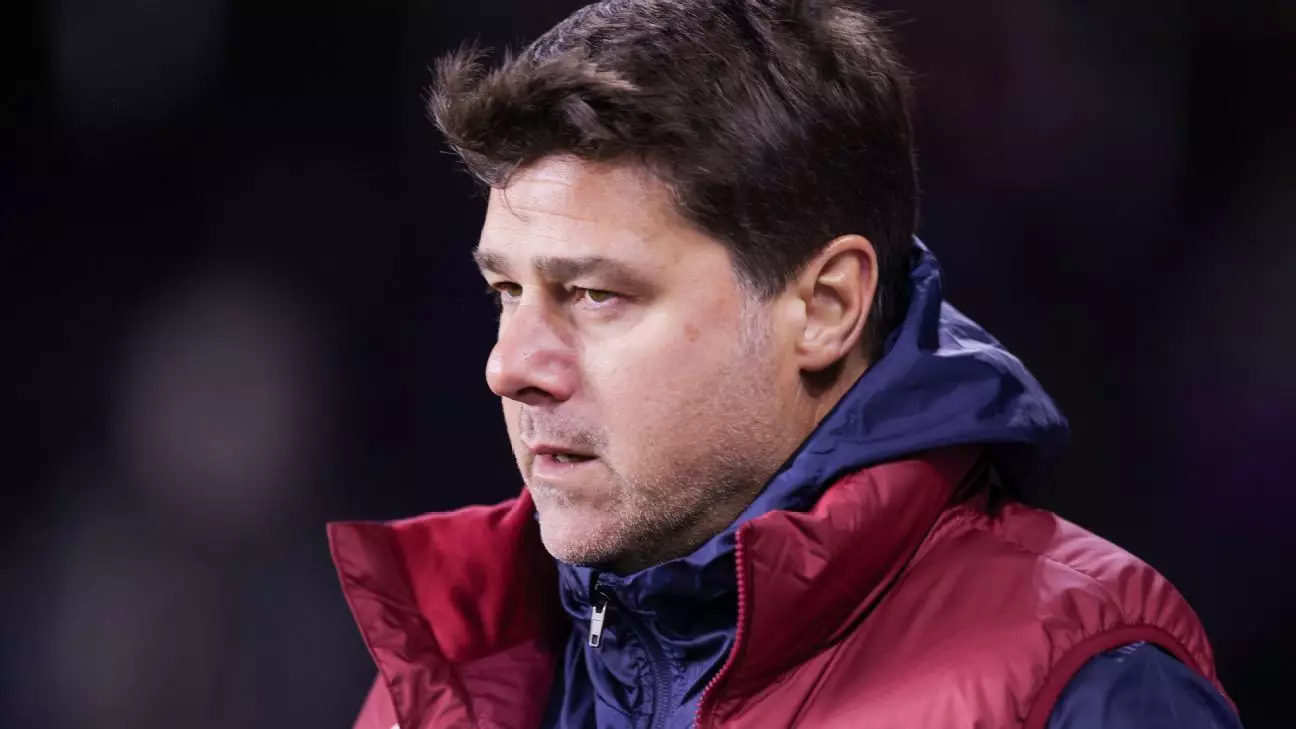In the realm of sports, particularly in international competitions, the intertwining of politics and athletics can create a potent cocktail of tension and spectacle. This reality was underscored recently when U.S. men’s national team (USMNT) manager Mauricio Pochettino referred to the political distractions surrounding their Concacaf Nations League semifinal match against Panama. His remarks reflect a broader sentiment shared among coaches who are determined to keep the focus where it belongs—on the game.
Pochettino’s attempt to play down political dialogues serves as a clear message: while the world outside the stadium may be loaded with geopolitical undertones—like President Trump’s comments on the Panama Canal—individual passion for sports transcends these issues. For many athletes and coaches, the priority must remain on performance and national pride rather than getting tangled in divisive discourse. In doing so, Pochettino emphasizes values that resonate deeply within competitive sports—the intent to unite and inspire rather than divide.
Defending a Legacy On the Field
Within this dialogue, one can observe Pochettino’s commitment to the essence of sportsmanship: defending one’s colors and badge with honor while embracing the challenge of competition. His declaration that the USMNT aims to “destroy” their opponents is not a call for violence or extra-sporting aggression, but rather an expression of the fervor and ambition that drives athletes to excel. The idea of “destroying” the competition is rooted in the passion for victory, crystallizing the mindset of players who embody a fighting spirit on the pitch.
Notably, the juxtaposition of sports and politics raises significant questions about the responsibilities of athletes and coaches as public figures. Should they express views on contentious topics, or should they stand firm as ambassadors of unity? Pochettino elucidates this well, suggesting that while respect for personal values is essential, the primary focus should remain on fostering an environment where athletes can perform to the best of their capabilities.
Coaches as Navigators in Turbulent Waters
This sentiment isn’t exclusive to Pochettino. Like him, Panama’s coach, Thomas Christiansen, sidestepped the political currents in favor of discussing the finer points of tactics and team formation. Such perspectives highlight an essential aspect of coaching—the navigation through not just strategic challenges within the game, but also through the often rocky landscape of external societal pressures. By prioritizing the game’s technical aspects over the political context, coaches convey a powerful message of professionalism and focus.
Even Jesse Marsch, coach of Canada, contributed to this discourse by insisting on sport as an arena for cohesion rather than division. In a poetic nod to the shared experiences of North American nations, Marsch pointed out the role that international competitions can play in healing divides. By emphasizing support for teams and players rather than divisive political rhetoric, coaches can cultivate a spirit of camaraderie among fans who are capable of setting aside their differences for the love of the game.
The Global Stage: Sports as a Unifier
In navigating these challenges, it becomes clear that sports transcend borders, providing a unique platform for dialogue and understanding among nations. Pochettino’s experiences, having been involved in a politically charged atmosphere during the Falklands War, lend weight to his advocacy for an unwavering focus on the sport itself. His argument offers solace and perhaps an insight for players: to find joy in the game, irrespective of what happens in the political arena.
Moreover, the vibrant tapestry of cultures represented in competitions like the Concacaf Nations League could serve as a stage for not only showcasing talent but fostering understanding and respect across various nations. The idea of focusing on athletes as role models who showcase excellence can shift the narrative from one of hostility and division toward one rooted in cooperation and appreciation for the sport.
As these coaches strive to maintain their teams’ focus amidst political currents, their collective responses illustrate a broader philosophy within sports: the pursuit of excellence on the field can simultaneously pave the way for respect, understanding, and unity beyond it. Let the passion for the game rule the day, yielding moments of brilliance and unforgettable memories, while the political arena recedes as a mere backdrop to the spectacle of sport.

